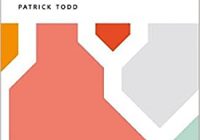Philosophical Essays against Open Theism – ch. 7: Stewart
This is part seven of eleven in a series responding to the essays in Ben Arbour’s edited volume, Philosophical Essays against Open Theism (Routledge, 2019). In this post I tackle chapter 7 by Robert B. Stewart, “On Open Theism Either God Has False Beliefs, or I Can Know Something That God Cannot” (pp. 110–118). This… Read More »
